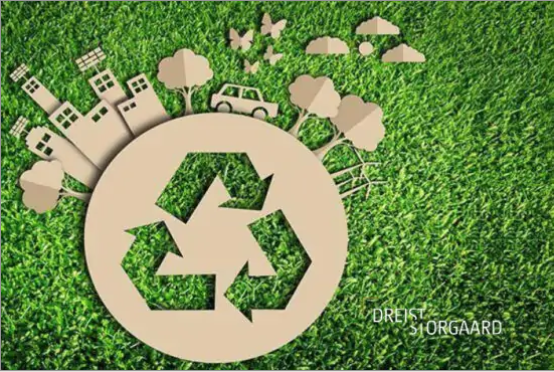From several sides, there is an enormous focus on companies taking more responsibility and contributing to the green transition. Everyone wants the green transition to happen faster, which has led to ambitious and high demands, which have been mandated by law both nationally and internationally.
In order to oblige the companies and create transparency for the outside world, there are, among other things, from the EU Commission issued a number of directives and regulations to support the development. The EU Commission thus adopted the so-called disclosure regulation as recently as spring 2021, which has really boosted the use of the taxonomy regulation’s classification system when it has to be assessed when an investment/economic activity can be considered to be truly “sustainable”.
The regulation therefore contains, among other things, rules on financial market participants’ and financial advisers’ obligation to provide information in relation to the integration of measures regarding environmental, social and management issues (ESG) with regard to a financial product. The purpose is to create transparency with regard to negative sustainability impacts as well as their dissemination of sustainability-related information.
The intention is that in their management report the companies must report on a number of specific sustainability standards regarding the environment, social conditions and good corporate governance (ESRS). It can be, for example, the companies’ concrete measures to reduce environmentally harmful discharges, countering/reducing climate change, sustainable measures such as the use and recycling of materials and buildings during renovation and new construction, protection of water and marine resources, circular economy, combating pollution, employee conditions, diversity and gender pay gap.
Sustainability risks can be an environmental, social or governance event or circumstance that, if it were to occur, could have an actual or potential material adverse effect on the value of the investment. In the long term, it is further expected that there will be regulations on sustainable due diligence from the EU, which will oblige companies to investigate their own company, business partners, value chain etc., in relation to environmental considerations, human rights and responsible corporate governance in the company’s operation and management.
The EU requirements aim to support a faster sustainable transition and turn capital towards sustainable investments. The requirements ensure transparency for the outside world, but it is also expected that it will become a focal point for the reporting companies. Sustainability measures and the reporting requirements will also entail a significant workload, as the reporting does not only cover existing conditions, but also requires a description of the company’s continued development towards increased sustainability.
Due to this situation, it is also particularly important that the companies quickly systematize their ESG policies and principles, sustainability measures and reporting requirements so that it becomes rooted in the company’s strategy.
At the same time, the legal landscape shows that the law will play a decisive role in the green transition, not least as a result of the comprehensive and binding EU regulations and the rules on misleading marketing, where the Consumer Ombudsman has published a “quick guide” on the guidelines for when you have to call yourself sustainable in marketing – Read more here. The argument is therefore fundamentally that rules can change the behavior of companies, including financial companies, of investors and ultimately also of consumers. Many keys are played to facilitate the green transition, and work is done with many of the tools from the legal toolbox.
Rules on sustainability can have different purposes and focuses, where they e.g. is aimed at very broad themes or with a spotlight on more specified themes within Environment, Social or Governance. At the same time, the rules can have very different content of a more or binding nature, including many discretionary rules, which does not make the area any less complex.
ESG and sustainability in the various business sectors.
Among other things, players in the real estate industry will increasingly be met with inquiries about the company’s current level of sustainability as well as demands to present concrete statements for future strategies and measures regarding the implementation of ESG and sustainability initiatives both from investors, financial institutions and public authorities. This will be both in connection with new construction, construction works, asset management of property portfolios and investments in real estate.
A number of sustainability measures are introduced in the updated version of BR 18, which entered into force on 1 January 2023. The aim is to create a more sustainable construction and also reduce CO2 emissions from construction. Under BR 18, requirements have been introduced for the calculation of the building’s climate impact in the form of a life cycle assessment (LCA) and a fixed limit value for the climate impact of new construction over 1000 m2. As a result of the update of BR 18, any building that applies for a building permit after 1 January 2023 must meet the requirement to carry out an LCA.
The requirement for life cycle calculation (LCA calculation) for new construction – which is known from DGNB certifications – aims to make visible the building’s climate impact “from cradle to grave”. The calculation follows a fixed standard and is calculated in kilograms of CO2 equivalents per m2 per years over a 50-year period.
Already from 2025, corresponding limit values will be introduced for all new construction, regardless of size. The calculation must be available when the construction is completed and must demonstrate a level below the limit value.
The many new ESG requirements will have a significant impact on many industries over the years, and many questions of a legal nature will naturally arise. If you need advice, you are always more than welcome to contact us on phone 56 63 44 66 or by email kontakt@dslaw.dk.
By partner and lawyer Dan Jordy





